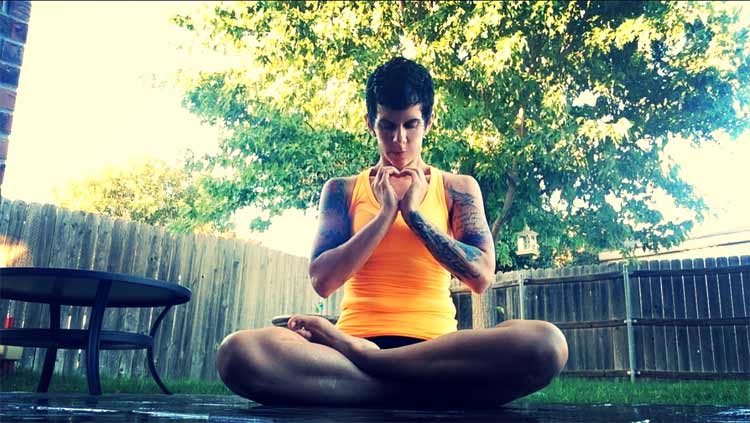The first time my husband and I said “I love you” to one another, we were at a party; drunk, and in a bathroom (of all places). Now, first things first, before you say anything, let me just say that it was actually much more romantic than it sounds. Secondly, it was completely appropriate; we had been dating for some time, we knew each other and we did, in fact, love one another.
After all, you don’t just tell someone you don’t know that you love them — that would be absurd, and borderline crazy. We are taught to guard our hearts, so we use the words “I love you” with great caution.
Encountering The ‘Namaste’
The first yoga class I took, along with every subsequent class, ended with some version of “the light in me honors the light in you, Namaste.” To most people maybe this isn’t a big deal, but me? I was shocked, uncomfortable, and you better be sure I wasn’t saying it back like the rest of the class.
Who was this teacher? And who was her light to dare honor my light? The light in her didn’t know the light in me. Our lights had never even met, let alone were they in any position to honor one another. I wouldn’t tell a stranger I loved them, so I sure wasn’t about to “Namaste” anyone.
I spent months cringing at the end of each and every yoga class, literally gritting my teeth and responding with some kind of awkward humming sound that might have sounded like “Namaste” in a sea of other “Namaste’s.”
I started to believe that there was something fundamentally wrong with me and that I could never be a true yogi.
The Truth About ‘Namaste’
It took a long time before I finally got it; before I was willing to accept this part of my yoga practice. At the same time I was trying to understand this part of my practice, I realized that I was not the only one struggling. In fact, there were classes I attended where everyone, I felt, was using my awkward “Namaste” humming technique as well. It made me feel better.
The truth is that “Namaste” is the simplest and most difficult idea. It is pure, and to truly accept it, receive it, and reciprocate it is the ultimate in vulnerability. In fact, if given the chance, at the earliest points in my yoga practice, I would have rather done yoga completely naked rather than return “Namaste.”
I would have been way less vulnerable with no clothes on than to expose my heart, my light, in such a way to let a complete stranger in.
Namaste Versus I Love You
The drunken “I love you” I had shared with my husband was based on the things he had done for me, the memories we had created, and the life we were building together…a mutual knowledge of one another. “I love you” is tied to a feeling based on facts, actions and the concrete in life. If someone were to ask you why you loved someone or something, you would rattle off an entire list of actions, intentions, and emotions that you knew to be true. “I love you” is simple.
“Namaste,” on the other hand, is a word that is tied to the ultimate respect for another person that is based not upon who they are, and what they say or do, but their very presence in this life. If someone asked “why do you Namaste that person?” or I suppose more appropriately, “why do you honor that person” — the answer isn’t tied to something you can list, hold on to, or share a photograph of. “Namaste” is hard.
It’s Hard, But It’s Okay
While “Namaste” is hard, the truth of the matter is that it’s okay. It’s okay to be vulnerable, and probably less offensive to everyone else in class if you continue to wear clothes. It’s okay if it takes time to reach that level of vulnerability in your practice, and it is okay to honor someone you do not know and maybe have no intention of ever knowing.
It is okay to appreciate the very presence of another person in this life. You may not love every yoga instructor you meet, and surely there will be other yoga students on the mat beside you that you do not love, but feel free to go ahead and “Namaste” them. It’s okay.


